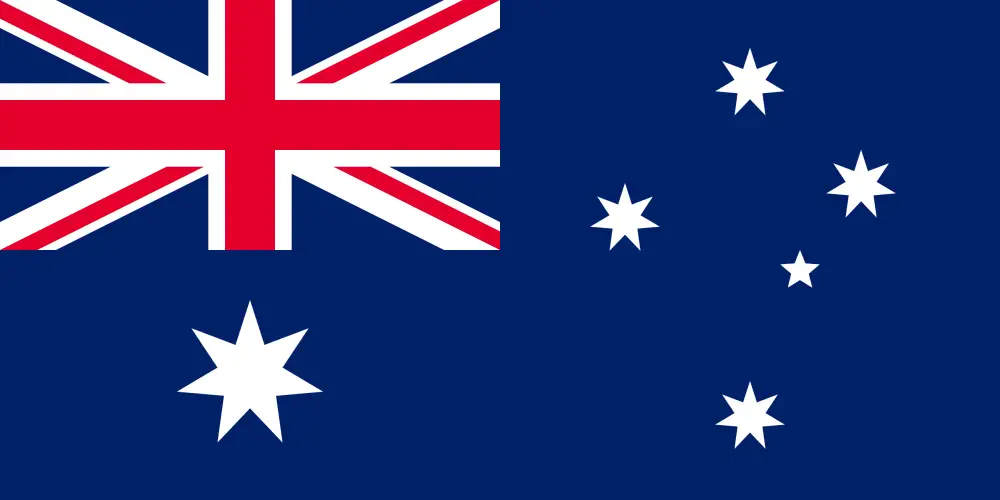Country Information
| Sovereign State | Yes |
| Country Codes | AU, AUS, 036 |
| Official Name | Commonwealth of Australia |
| Continent | Oceania |
| Capital | Canberra |
| Government Type | Federal parliamentary constitutional monarchy |
| Currency | Australian dollar (AUD) |
| Calling Code | +61 |
| Member Of | United Nations, Commonwealth of Nations, World Trade Organization, Asia-Pacific Economic Cooperation, G20, Organisation for Economic Co-operation and Development |
| Population | Approx. 25 million (as of 2023) |
| Total Area | 7,692,024 square kilometers |
| Highest Point | Mount Kosciuszko (2,228 meters or 7,310 feet) |
| Lowest Point | Lake Eyre (-15 meters or -49 feet) |
| GDP Per Capita | Approx. $57,300 (as of 2023) |
| Life Expectancy | Approx. 83 years (as of 2023) |
| Internet TLD | .au |
Australian National Anthem
Advance Australia Fair
Australians all let us rejoice
For we are one and free
With golden soil and wealth for toil
Our home is girt by sea
Our land abounds in nature’s gifts
Of beauty rich and rare
In history’s page, let every stage
Advance Australia Fair
In joyful strains then let us sing
Advance Australia Fair
Flags of Neighboring Countries







History of the Australian Flag
The Australian flag, first flown in 1901, has a deep and significant history. It was the result of a public competition following the federation of the Australian colonies. The flag combines elements that represent Australia’s historical ties and its unique identity.
The flag features three primary components: the Union Jack in the top left corner, signifying Australia’s historical links to the United Kingdom; the Southern Cross constellation (Crux) on the right half, representing Australia’s geographical location in the Southern Hemisphere; and the Commonwealth Star below the Union Jack, with seven points representing the unity of the six states and the territories of the Commonwealth of Australia.
The original design was chosen from entries in a competition held following the federation of the colonies in 1901. The first flag was flown on September 3, 1901, in Melbourne. The initial design included a six-pointed Commonwealth Star, which was changed to a seven-pointed star in 1908 to represent the territories and any future states of Australia.
The Australian flag has been a point of pride and a unifying symbol for Australians. It has flown during times of war and peace, celebration, and mourning. While it has been the subject of debate and discussion about its representation of Australia’s heritage and identity, the flag remains an enduring symbol of the nation’s history, values, and sovereignty. The Australian flag, with its distinct design and symbols, continues to represent the country’s democratic ideals, rich history, and diverse society.

